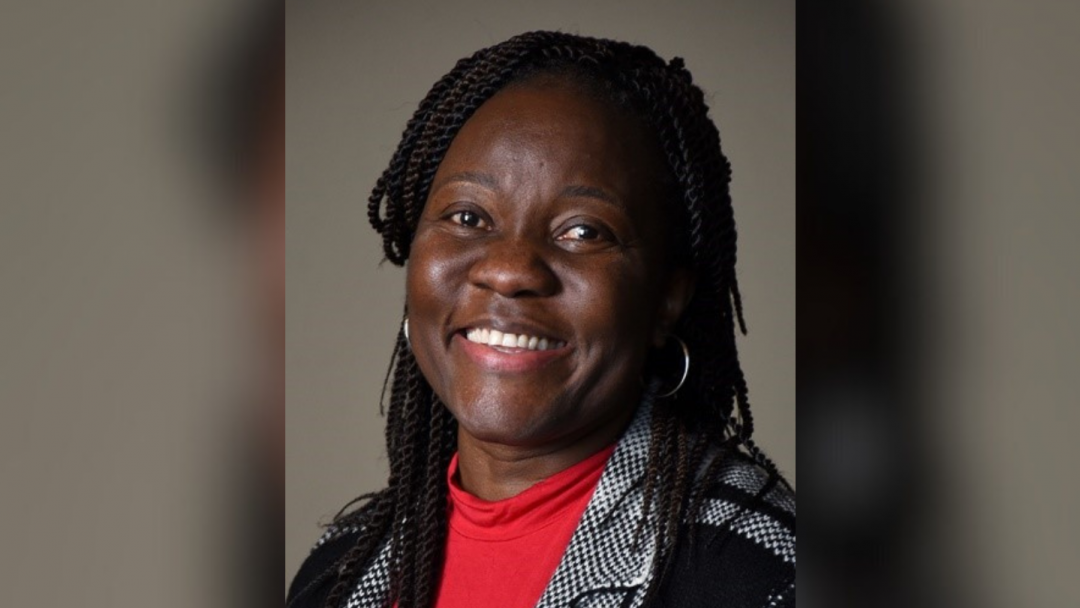Welcome Lydia Kapiriri, Director of Equity, Diversity, Inclusion and Indigenous Strategies for Social Sciences

As of 1st July 2024, Lydia Kapiriri is the new, inaugural Director of Equity, Diversity, Inclusion and Indigenous Strategies for Social Sciences. She has been a member of the Health, Aging and Society department at McMaster since 2007.
As an academic, Kapiriri is trained as a physician with specialization in Public Health and Global Health. Her research programs encompass health systems—specifically priority setting and resource allocation, adolescents’ sexual and reproductive health, and loneliness and social isolation among older adults. While diverse, all these research programs use an equity lens and focus on the inclusion of equity considerations in priority settings, ensuring that marginalized populations are included and that their interests and needs are considered.
The equity lens also informs the courses she teaches: Global Health, Culture and Health, and Health Inequalities.
We caught up with Lydia to talk about what led her to this role, what she’s excited about the most, and what Equity, Diversity, Inclusion (EDI) and Indigenous Strategies means to her.
What does Equity, Diversity, Inclusion and Indigenous Strategies mean to you?
There are several definitions of these terms in the literature. However, I have developed my own operational definitions to guide my work.
Equity has been defined in terms of fair treatment, access, opportunity. Some consider it to be an approach or process that recognizes and addresses the existence of systemic social inequalities and through which these barriers imbedded in policies and practice are removed.
Diversity is any dimension such as ethnicity, gender, age, national origin, ability, sexual orientation, faith, socio-economic status and class that can be used to differentiate people from one another.
Inclusion implies a sense of belonging for diverse persons—especially ensuring those who traditionally have the least access to social and political power are valued and provided with the opportunity to participate fully in creating a successful and thriving community.
Indigeneity recognizes the impact of colonization and continued oppressive treatment of Indigenous populations, and seeks to centre Indigenous perspectives, knowledges, and values.
When these concepts are brought together under a strategic mandate, as they are in my new role, Equity, Diversity, Inclusion and Indigenous Strategies aim to remove the systemic barriers that prevent certain groups of people (based on various characteristics) from having a sense of belonging and meaningfully contributing to their community’s development and success. They also recognize and include the unique experiences of the Indigenous populations.
Why does the role excite you?
The Faculty of Social Sciences is committed to EDIIS as exemplified by the numerous EDIIS initiatives they have implemented over the years. I am hence excited to work within this environment. I have previously experienced the faculty’s support during my appointment as the chair to the dean’s EDIIS advisory committee. While in this position, the committee operationalized and prioritized initiatives that the various programs and faculty could consider. The committee also identified critical challenges that need to be carefully considered if EDIIS activities are to thrive within the various programs in the faculty. This short term as chair gave me insights into the potential for this new position to champion EDIIS initiatives within the faculty.
I am excited to build on this experience and work with the very supportive EDIIS advisory committee and administration to further the faculty EDIIS activities.
What are your goals in the role?
As Director of EDIIS, my goals are to champion and operationalize the EDIIS priorities, as identified in the Faculty strategic plan. This work was initiated during my term as the chair of the dean’s advisory committee on EDIIS. It is critical that any EDIIS activities align with the faculty priorities. To meet this goal, legitimate representation from all departments is critical. Hence, one of my first priorities is legitimizing the representatives from various departments within the faculty to the EDIIS advisory committee.
Another priority is to build on and support department-led EDIIS initiatives. During my tenure, we learnt that a one-size-fits-all approach may not work across all departments and programs in the faculty. To support all units in their efforts to advance EDIIS, it will be critical to listen to the chairs and directors, learn about how they think about and are operationalizing EDIIS activities, and develop ways to share those initiatives with peers across the faculty. At present, different departments have different EDIIS initiatives; however, there are no systematic ways to share or monitor these experiences. Facilitating cross-department sharing, monitoring, and evaluating of EDIIS experiences will be a large part of supporting departmental EDIIS initiatives. Such a systematic approach will help advance EDIIS within the Faculty of Social Sciences and the university-wide EDI strategic plan.
As the director, I am committed to listening to and learning from the priorities and initiatives of people and departments in our Faculty, across the university, and beyond. As a committee, we will identify activities that support the Faculty EDIIS priorities and collaboratively devise implementation plans to ensure these initiatives have lasting impact for the Faculty of Social Sciences and all the individuals and organizations that work within and alongside it.
Departmental NewsRelated News
News Listing

3 days ago

Master of Public Policy Graduate John Halligan Advocates for Consumer Protection in the Ontario Legislature
Departmental News
December 6, 2024

Health, Aging and Society Assistant Professor Nicole Dalmer named inaugural Global Fellow in End-of-Life Care
Departmental News, Research
November 29, 2024
